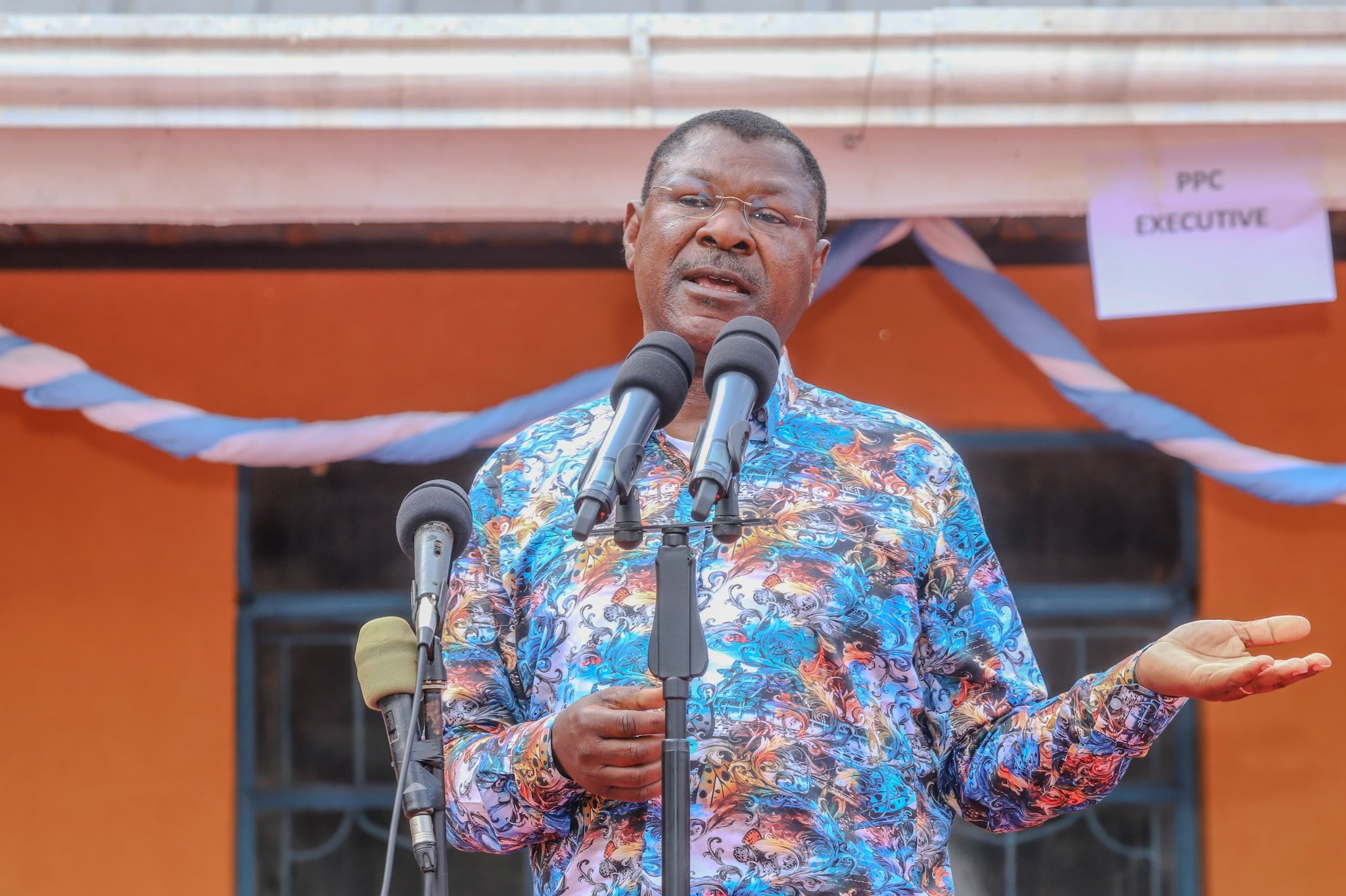Wetang’ula Touted as Future Presidential Candidate for 2032
National Assembly Majority Leader Kimani Ichung’wah heaped praise on Wetang’ula

Leaders from the Western Region have launched an aggressive push for political unity as they seek to consolidate their influence and position one of their own for the presidency by 2032.
Speaking during the burial of Mzee Peter Nasong’o Nabwera in Lugari Constituency, Kakamega County, senior politicians emphasized the urgent need for the Luhya community to turn its numerical strength into decisive political power at the ballot box.
The gathering, attended by influential national and regional leaders, painted a picture of a region determined to break away from its historical struggles with disunity and fragmented political loyalties.
Despite being one of the most populous communities in Kenya, Western Kenya has long grappled with the inability to translate its numbers into political dominance. Fernandes Barasa, the Governor of Kakamega County, lamented the community’s failure to leverage its population for strategic gains in elections.
“We are the second-largest population in Kenya, yet our numbers don’t count during elections. We must change this narrative,” Barasa said. “Unity is the only path to commanding respect and securing our rightful place in national politics.”
Barasa called on leaders across the region to mobilize eligible voters, ensuring Kakamega, Bungoma, Busia, Vihiga, and Trans Nzoia counties match the voter numbers seen in regions like Nairobi, Kiambu, and Nakuru.
“We are not just aiming for participation but dominance. By the next election, Kakamega must join the ranks of counties with over one million voters,” Barasa declared.
Speaker of the National Assembly Moses Wetang’ula emerged as the consensus candidate for the presidency in 2032. Leaders pledged their support to Wetang’ula, describing his leadership as a source of hope for the region’s aspirations.
Jack Wamboka, the MP for Bumula, urged colleagues to rally behind senior leaders instead of undermining them. “We need to stop political strangulation within our ranks and support those with the potential to lead us to victory,” Wamboka said.
Wetang’ula, a seasoned politician with over three decades in Parliament, has been likened to the late President Mwai Kibaki, whose long legislative career culminated in a successful presidency.
National Assembly Majority Leader Kimani Ichung’wah heaped praise on Wetang’ula, expressing confidence in his potential to rise to the highest office in the land.
“Speaker Wetang’ula has served in Parliament for over 31 years, second only to Mwai Kibaki, who served for 40 years. Where did Kibaki go after Parliament? He went to State House.
Wetang’ula can do the same,” Ichung’wah said. “When that time comes, I hope he remembers me I could be a great deputy president,” Ichung’wah quipped, emphasizing the importance of inter-regional collaboration.
While much of the rhetoric centered on long-term goals for 2032, leaders emphasized the need to rally behind President William Ruto in the short term. Barasa, who also chairs ODM in Kakamega, noted that supporting Ruto’s administration would position the region favorably for future negotiations.
“We are fully behind President Ruto because his government has brought national unity. But we are also laying the groundwork to ensure that Western Kenya speaks with one voice in 2027 and beyond,” Barasa said.
Wetang’ula stressed the importance of structured political planning, warning against using funerals as platforms for strategy discussions. He called for a series of formal meetings to chart the region’s political future.
“Tomorrow’s strategies cannot be planned in funerals. We must organize ourselves, meet, and strategize effectively to position our region for success,” Wetang’ula said.
He also highlighted the need for robust voter registration drives across the region, urging counties to prepare for the next elections by mobilizing large voter bases.
The leaders announced plans for a series of rallies and meetings across Western Kenya to foster unity and mobilize voters. From Kakamega to Bungoma, Busia, and Trans Nzoia, the region’s leadership is determined to ensure that every eligible voter is registered and engaged in the political process.
“Our journey to unity has begun,” Barasa declared. “By the time we leave Western Kenya, we will be speaking with one voice, and that is the only way to achieve respect and influence.”
As 2027 approaches, the leaders remain focused on leveraging the elections as a springboard for 2032, where they hope to make history by propelling the Luhya community to the presidency.
“Our strategy is clear,” Barasa concluded. “We are laying the foundation for a united Western Region, and we are committed to ensuring that by 2032, the presidency is within our grasp.”
This renewed commitment to unity has set the stage for Western Kenya to become a significant player in national politics, with its leaders confident that their efforts will finally yield the long-awaited political breakthrough.





